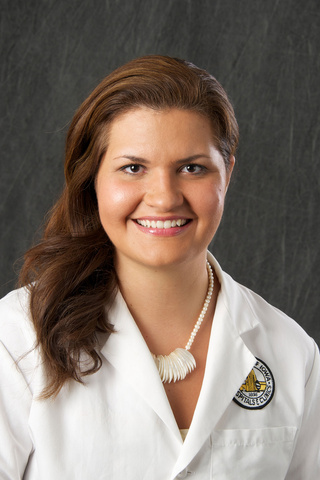
Denise Martinez, MD
Associate Dean for Diversity,
Equity and Inclusion
Clinical Associate Professor
of Family Medicine
Denise Martinez, MD, wanted to be a doctor from the time she was 5 years old.
After earning a “C” grade in general chemistry as an undergraduate student, however, Martinez feared her medical career would stall before it had even started.
“I had an advisor who told me there was no way I would ever get into medical school,” says Martinez.
But through her hard work and determination, plus a summer enrichment program for college freshman and sophomores interested in the health professions, Martinez did get into medical school. Today, she serves as a clinical associate professor of family medicine and associate dean for diversity, equity, and inclusion at the University of Iowa Carver College of Medicine.
She also serves as the advisor for the Minority Association of Pre-medical Students (MAPS) at the university and was integral in bringing the Summer Health Professions Education Program (SHPEP)—a program designed to prepare undergraduates who dream of careers in medicine and other health fields—to the UI Carver College of Medicine.
As the principal investigator of SHPEP, a national program funded by the Robert Wood Johnson Foundation (RMJF), Martinez recognized its value when she witnessed firsthand the way it can transform the lives of its participants.
“Without it, there would have been no way that I would have gone to medical school,” she says.
Summer Health Professions Education Program
Hosted at 12 other universities around the nation, SHPEP is a six-week, all-expenses-paid program that selects 80 students from underrepresented groups to participate in coursework, mentorship sessions, and exercises designed to provide them with the resources they need to succeed as students in medical school or other health professional careers.
“As a former participant of the program, I can say with confidence how life-changing this program can be,” says Martinez.
Aside from supplying students with purely educational benefits, SHPEP can also help instill confidence in students, which Martinez says is important in a medical culture.
“When I was in school, I noticed that the medical students who appeared confident—even though I knew just as much as they did—did much better on rotations,” says Martinez.
While projecting confidence is important, Martinez also notes that it’s important to be open-minded, saying that when interviewing for residency after medical school, the University of Iowa wasn’t even on her radar.
“Originally, I didn’t even want to interview at Iowa,” she says. “I had only lived in big cities, and I thought ‘There’s no way I’m going there.’”
After interviewing at schools up and down the east and west coasts of the country, Martinez finally gave Iowa a chance.
“It ended up being my No. 1 choice,” Martinez says. “I absolutely loved it. The people were right, the culture was right, and it was diverse.”
Her journey also granted her insight into something that most medical professionals don’t like to talk about: failure.
For today’s pre-medical and medical students, Martinez offers these suggestions:
“Lots of students feel like one failure will ruin their career, but that’s not true,” she says. “The thing that I’ve now understood is that even though most people who go into medicine will end up very successful, almost all of them have failed at some point.”
Martinez emphasizes that as long as you put in the required work and don’t lose sight of your goal, failure is a natural part of the process. In her view, it’s one of the reasons she has succeeded.
Through force of will, unyielding motivation, and the teachings of SHPEP, Martinez and many like her have been able to beat the odds and realize their career ambitions of serving as health care professionals.